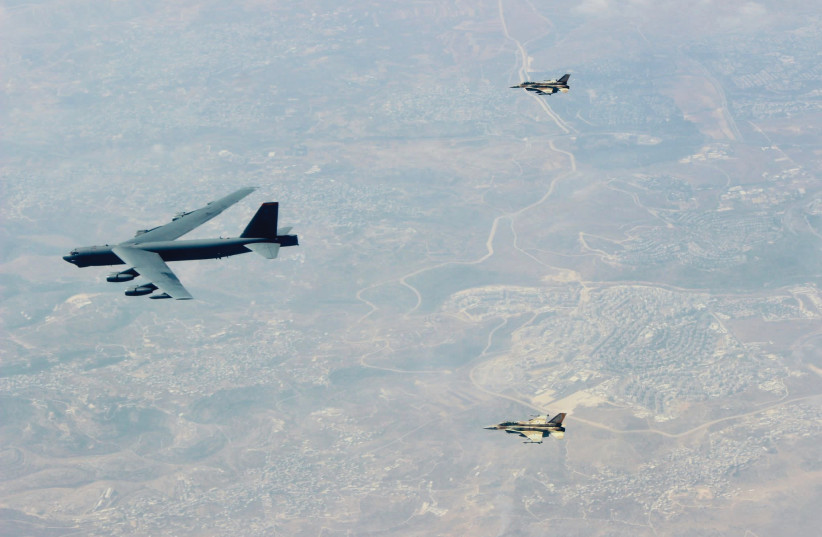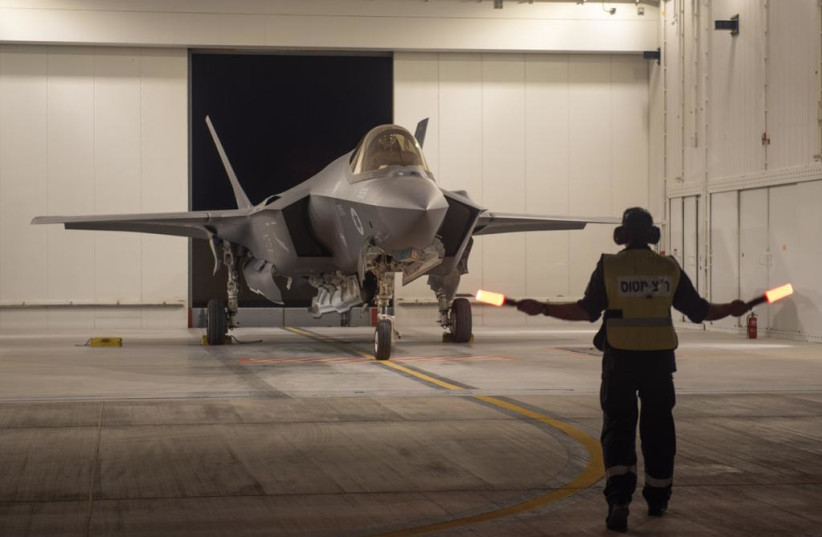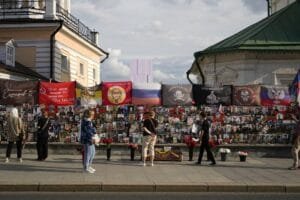
Whether the air force is striking Gaza to convince terror groups not to fire rockets on Israel; Syria and other locations to block precision weapons transfers; or bringing rescue and medical units to Turkey to save civilians there, the glory usually goes to the pilots.
There is usually little discussion of the unsung heroes, the air force logistics units, which help the pilots take off, land and care for the aircraft at all times to make sure they are flight worthy.
The Jerusalem Post recently spoke to Maj. “B” of Unit 201 about his and his team’s experiences in making sure the air force meets the multi-front challenges it has been given.
Call and response
Over January 26-27, Israel and Gaza exchanged fire at the most significant level since August 2022’s Operation Breaking Dawn.
B. said he heard that Gaza “had fired on us, and got a telephone call that we needed to respond.”
He and his team then “went down to the aircraft to work on a variety of technical issues to get them ready. It is not enough for them to be ready generally – they must be ready at the exact time” orders are given to carry out strikes.
Asked if he or his team were extra stressed thinking about whether this would be the start of a new major conflict, B. responded, “No. This is part of what happens. This is why we are here. We don’t think about whether the operation is going to be large or small and narrowly tailored. We just make sure there can be a response” in a timely and efficient manner.
B. went even further, saying that it also was not his team’s responsibility to think about “how successful the aircraft were in striking one target or another set of targets. Rather, our role is to carry out our mission, which is to make sure the aircraft have the technical capacity to carry out their mission – if they return safely, we have succeeded.”Pressed about whether his wife was stressed about him needing to work through the middle of the night and the potential for an extended new conflict where he would be away from home, he demurred.
“Once again, we do not think about whether Hamas will respond more or not. We carry out our mission. Whether we are needed at night or during the day is irrelevant. Our families are ready for this – this is why we serve in the IDF,” he said.
B. stressed “the importance of the technical logistics units of the air force,” who might not always get noticed by the broader public. “We work long hours, from early in the morning until late at night. We don’t get to think about how hot it is [in the summer] or how cold it is [in the winter]. We just do our best so the air force can do its best.”Gaza is not the only place where air force logistics teams are making a difference.
Regarding the Israeli rescue mission to Turkey, Maj. “S” of Unit 120 told the Post that not long ago, “I received a telephone call. Wow – we need to prepare a Re’em [a Boeing 707 transport aircraft] for takeoff for a mission that embodies Jewish and moral values, to help the Turkish nation as part of an IDF Home Front delegation.”
Speaking earlier in the day, S. continued, that up to that point there were “working against the clock to fix any technical problems, to load the aircraft with critical equipment for the good of the mission and for returning to Israel.
“I am proud to be a part of such an important multi-nation delegation – as a father of three children, as an air force officer, and as a citizen of the State of Israel.”
Source: The Jerusalem Post


















Add Comment